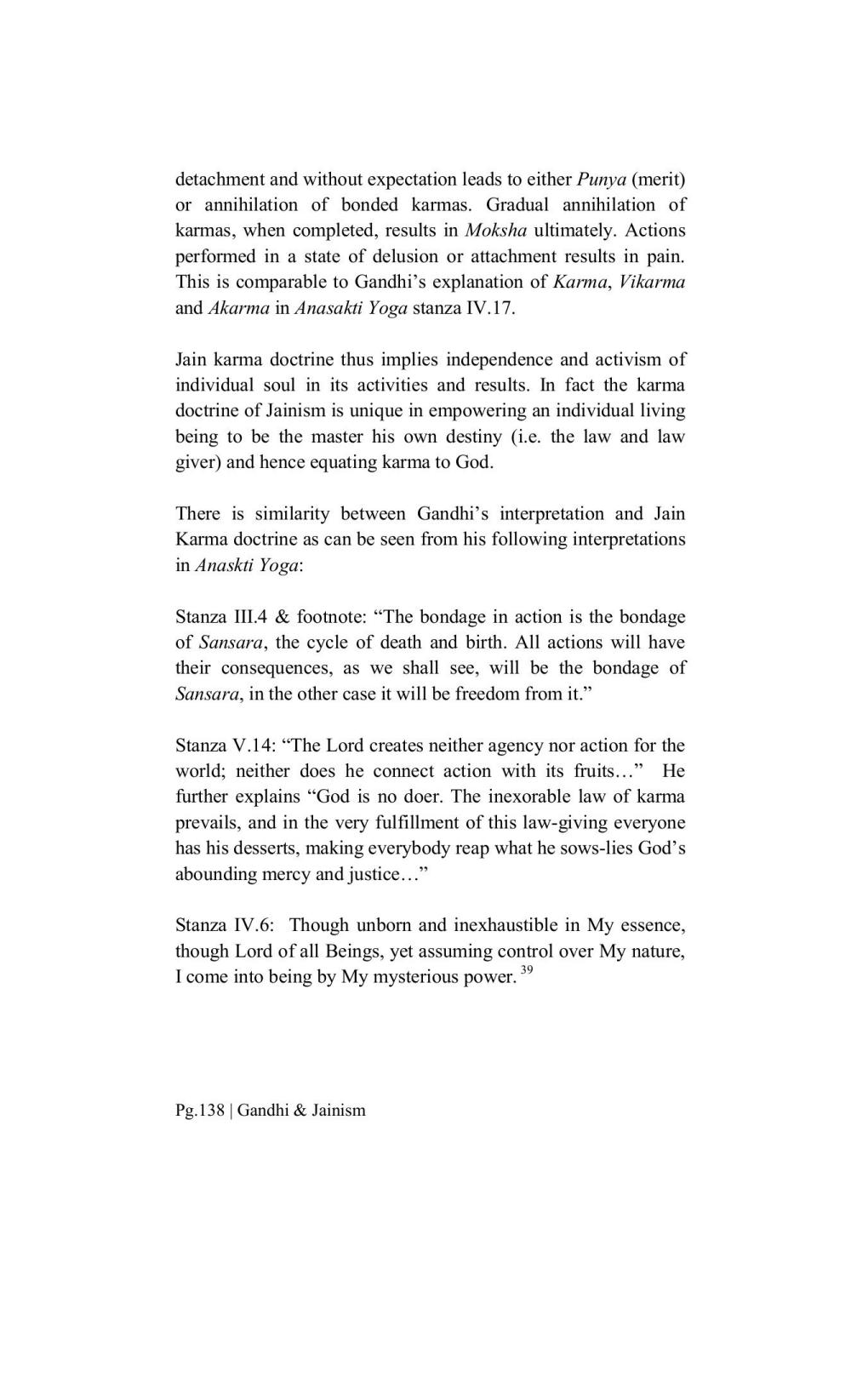________________
detachment and without expectation leads to either Punya (merit) or annihilation of bonded karmas. Gradual annihilation of karmas, when completed, results in Moksha ultimately. Actions performed in a state of delusion or attachment results in pain. This is comparable to Gandhi's explanation of Karma, Vikarma and Akarma in Anasakti Yoga stanza IV.17.
Jain karma doctrine thus implies independence and activism of individual soul in its activities and results. In fact the karma doctrine of Jainism is unique in empowering an individual living being to be the master his own destiny (i.e. the law and law giver) and hence equating karma to God.
There is similarity between Gandhi's interpretation and Jain Karma doctrine as can be seen from his following interpretations in Anaskti Yoga:
Stanza III.4 & footnote: "The bondage in action is the bondage of Sansara, the cycle of death and birth. All actions will have their consequences, as we shall see, will be the bondage of Sansara, in the other case it will be freedom from it."
Stanza V.14: "The Lord creates neither agency nor action for the world; neither does he connect action with its fruits..." He further explains "God is no doer. The inexorable law of karma prevails, and in the very fulfillment of this law-giving everyone has his desserts, making everybody reap what he sows-lies God's abounding mercy and justice..."
Stanza IV.6: Though unborn and inexhaustible in My essence, though Lord of all Beings, yet assuming control over My nature, I come into being by My mysterious power.
39
Pg.138 Gandhi & Jainism.




